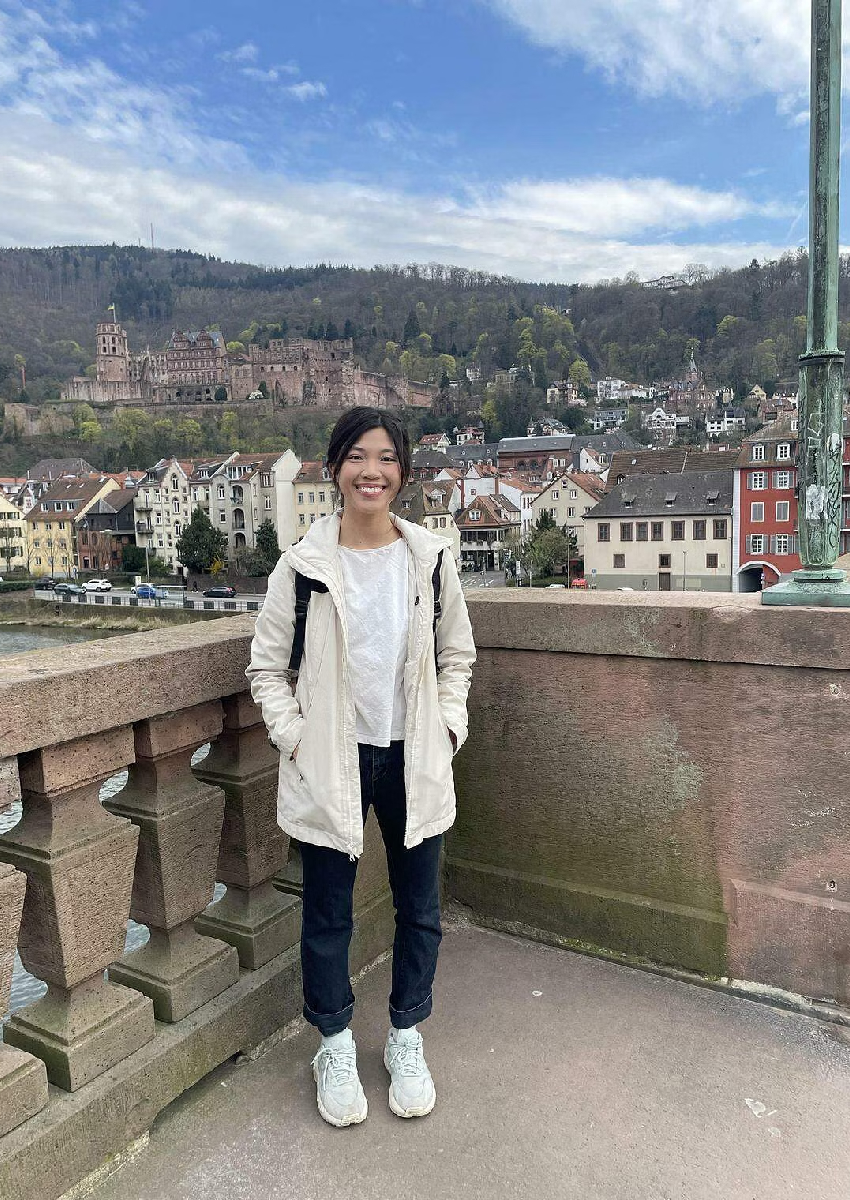Off the beaten path: More Singaporeans heading to Japan, Germany, the Netherlands for further studies


SINGAPORE — The overwhelming majority of Singaporeans pursuing their studies abroad do so in one of three countries: the US, Britain and Australia.
Nearly eight in 10 local students heading overseas made a beeline for these three countries in 2021, according to Unesco data on the global flow of higher-education students.
However, a small but growing cohort of Singaporean undergraduates are charting a less-trodden path, towards countries such as the Netherlands, Germany and Japan.
Singaporean degree-seekers in the Netherlands rose more than twofold from 32 in 2012 to 109 in 2022, according to Nuffic, the Dutch organisation for internationalisation in education.
In Germany, that figure increased from 167 in 2013 to 266 in 2022, according to the German Academic Exchange Service.
For Japan, that number surged from 156 in 2008 to 287 in 2022, figures from the Japan Student Services Organisation reveal.
Singaporean students who enrolled in universities in these alternative academic destinations say they did so for reasons of affordability, flexibility and the quest for a unique international experience.
Studying in these non-anglophone destinations was more financially feasible for themselves and their families.
For instance, tuition fees for international students in the Netherlands typically range between €9,000 (S$13,200) and €20,000 a year.
Fees in Japan average around 820,000 yen (S$7,300) to 1,100,000 yen a year, while German universities generally do not charge tuition fees as public higher education is free.
In contrast, the average tuition fee for international students in Britain stands at £22,200 (S$37,500), while typical fees for international students in Australia are between A$20,000 (S$17,700) and A$45,000 a year.
In Singapore, annual tuition fees at most public autonomous universities for Singaporeans costs between $7,500 and $12,700 after subsidies, depending on the course.
Students who spoke to The Straits Times say the relatively lower fees to study in the Netherlands, Germany and Japan give them a chance to spread their wings and live on their own without compromising on the quality of their degree, when they might otherwise not be able to afford to study overseas.
[[nid:645102]]
Ruth Luk, 28, moved to the Netherlands in 2021 to pursue a bachelor's degree in business at Tilburg University in North Brabant.
That decision came after doing the sums, and realising that with two years of savings from her role as a job coach at the Autism Resource Centre (Singapore) and taking a student loan from a local bank, pursuing an education in the Netherlands was within her reach.
Her yearly tuition came up to €10,000, which she covered using her student loan. Her parents did not have to fork out any money.
She estimates that she spent around €11,000 a year on living expenses, due to the relative affordability of her chosen city. She also did part-time jobs, tutoring and delivering food, in Tilburg.
She is glad for her choice, as the higher fees and living costs in the big three study destinations (Australia, Britain and the US) would have meant being saddled with "a more crippling" debt upon graduation.

For Sabrina Suhaimi, 22, who initially applied only to industrial and product design programmes in the US and Britain, Japan was not on her shortlist.
But the Covid-19 pandemic derailed her plans, and she started applying widely.
"One of my biggest reasons for picking Japan and sticking to it was because I could gain independence really quickly," says the fourth-year student at Kyushu University's undergraduate programme in interdisciplinary science and innovation, which is taught in Japanese and English.
Her tuition fees worked out to an affordable 535,800 yen a year.
With the scholarship she received from her university, and by working part-time in retail and teaching in Fukuoka, she could fund her studies without monetary support from her parents by her second year in the Japanese city.
It helped that the relatively lower costs of living in Fukuoka — compared with cities such as Tokyo and Singapore — kept her rental and grocery expenses low.
The main challenge for Sabrina in terms of costs was finding affordable halal meal options, which were often double the price of non-halal ones, there.

Pek Siying, a 21-year-old pursuing a medical degree in Heidelberg, Germany, says: "Studying at a university here was probably my best shot at trying to adult."
By that, she means being able to afford a studio apartment rental at €600 a month, away from friends and family.
She feels that renting alone and becoming a young adult among a wholly new community of friends are things not easily found among those in their 20s living in Singapore and other anglophone countries.
She has met only two other Singaporeans on campus, both of whom have since graduated, compared with the scores of Singaporeans enrolled in popular British universities.
For example, University of Bristol has 250 Singaporean students enrolled now, while University College London has 669.
Plus, medical school fees at Heidelberg University sets her back about €3,000 a year, a fraction of what it costs elsewhere.
Medical school fees typically cost more than £40,000 ($68,000) a year in Britain, and more than A$60,000 a year in Australia.
But it was not just economics that drove these students to their countries of choice.
A common thread among these students was the quest to escape from the pressure-cooker and grade-focused environment in Singapore.
Pek, who had set her sights on a career in the life sciences since she was in Secondary 4, decided on Heidelberg University because of its stellar medical faculty. "Applying for medicine locally was too competitive, and I wasn't successful," she says.
Heidelberg University is the top-ranked university in Germany in the QS World University Rankings for Life Sciences and Medicine. Internationally, it is ranked no. 39, six places behind the National University of Singapore.
Studying there was an easy choice that leveraged Pek's German-language skills — which she pursued as an A-level subject — in addition to being far cheaper than other alternatives.

Meanwhile, Brian Wong, a 22-year-old student based in Tokyo, says he sought an alternative to Singapore's "study-all-the-time" culture, which felt "like a prison".
Holidays to Japan left him impressed by the country's history and cultural traditions, so he spent his national service years learning Japanese through language-learning apps which connected him with other Japanese speakers.
Although the apps set him up with his first friends in the country, he had to be more fluent to be ready for university-level studies.
Getting into his four-year undergraduate programme in global management at Chuo University in Tokyo — taught in English and Japanese — involved completing a foundational year in Japanese at a language school in Tokyo and passing a tough entry exam.
Afterwards, he found student life there less dominated by grade chasing than extracurricular clubs, internships, and exploring the country with trips to Chiba and Mount Fuji.
"I've made a lot of Japanese friends, and if I moved back to Singapore, it would feel like I'm leaving behind half of myself," he says.

Similarly, Luk says her time in university was more focused on securing internships and networking than scoring As. That helped her land her current job on the operations team of a bank in Amsterdam upon graduation.
It was an approach enabled by one of the notable quirks of the Dutch education system: Students can resit any exam once, at no penalty.
Now a year into her job there, she says the Netherlands' multilingual workplace has not made her feel out of place as someone with limited conversational Dutch fluency. Her university course was taught in English.
She says the Netherlands is the place she calls home for now because it has what she finds lacking in Singapore, namely work-life balance and the ability to collect international experiences.
These, she says, include enjoying more affordable concert culture and the ease of travelling around the borderless Schengen Area within the European Union.
Of course, not treading the well-worn path is not all roses. Culture shock can prove to be a daunting and isolating challenge, especially in the initial months.
"I've never met someone who was like me, a Singaporean who was studying in my city long-term. Most of the ones I meet are in the Netherlands as exchange students," says Luk about her time in Tilburg.
The Singapore Students' Association of Germany told The Straits Times it has around 20 active members, while the equivalent association in Japan has about 160.
This is a stark contrast to big cities in anglophone countries with big Singaporean communities.
For example, the Singapore Students Association at just one university in the US — the University of Illinois Urbana-Champaign — has more than 120 students on its registry.
This scarcity of Singaporean compatriots means having to go it alone when dealing with culture shock.
These range from unpleasant brushes with slow bureaucracy — fax machines and paper are preferred over e-mail in Germany and Japan — to struggling with a new language and getting used to a different way of life.
Hannan Hazlan, a 26-year-old pursuing an undergraduate degree in mechanical engineering at RWTH Aachen, a public university in North Rhine-Westphalia, Germany, says: "I knew that Germany offered free tuition, but I didn't know how hard learning German would be."
He pays around €300 ($440) for a 14-week semester in administrative fees, which adds up to $880 a year.
While picking up everyday conversational German to order a meal is easy, understanding the technical German required for schooling is much tougher.
The second-year undergrad credits the time he invested in learning the language prior to his course as the key reason why he was not overwhelmed by his German-language curriculum.
Besides a year spent at a language school in Berlin, he began studying German on his own during NS. Still, when he first moved there, Hannan recalls having to ask locals if they spoke English.

But overcoming the linguistic challenge was worthwhile. Hannan, who graduates in 2026, plans to settle down in Germany to build a career in the automotive industry, and has found a new community of friends.
As a car enthusiast, Germany was an intuitive choice for him, a way to combine his career aspirations — working for a leading carmaker such as Volkswagen or BMW — with a work culture that focuses less on grinding and hustle.
It helps that the country has an intense love of motoring. "Even people who don't study here and are just visiting, they come to drive on the autobahn to experience driving 300km an hour or more on a public highway," he says.
Meanwhile, Sabrina, who moved to Japan with only an elementary grasp of Japanese, credits the immersion with getting her to her current level of fluency — the second-highest of Japan's five-point scale of language proficiency.
"This was something I was very scared of doing, I didn't want to lose face and talk to people before I was fluent in Japanese, but then eventually, I decided I had to," she says.
Through joining groups such as her university's entrepreneurship club and part-time sales work, her friends now include international students — who account for no more than 10 per cent of her current cohort of about 100 students — as well as Japanese co-workers and fellow business-minded locals.
Having bought a small Daihatsu car from a senior at the university for about $1,000, she now relishes driving around Kyushu and exploring the country — especially during the Covid-19 years when borders closed and tourism was at an all-time low.
She now plans to complete a two-year master's degree at Kyushu University and contribute to the growing start-up scene in Fukuoka.
She hopes to open a business that leverages the design and entrepreneurial skills she gained during her studies.
"I didn't really put Japan on this pedestal where I thought it was going to be sparkly and beautiful all the time," says Sabrina.
But she adds that these past four years studying there opened her eyes to a radically different world.
For those considering it, she has these words of advice: "I would say it's not the right place if you're not willing to take up the challenge of learning a new language and culture, and accept that what you already know isn't universal."
ALSO READ: 'Too much structure and comfort at home': Gen Zers aspire to work and live abroad, not just study
This article was first published in The Straits Times. Permission required for reproduction.